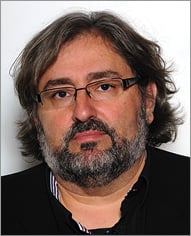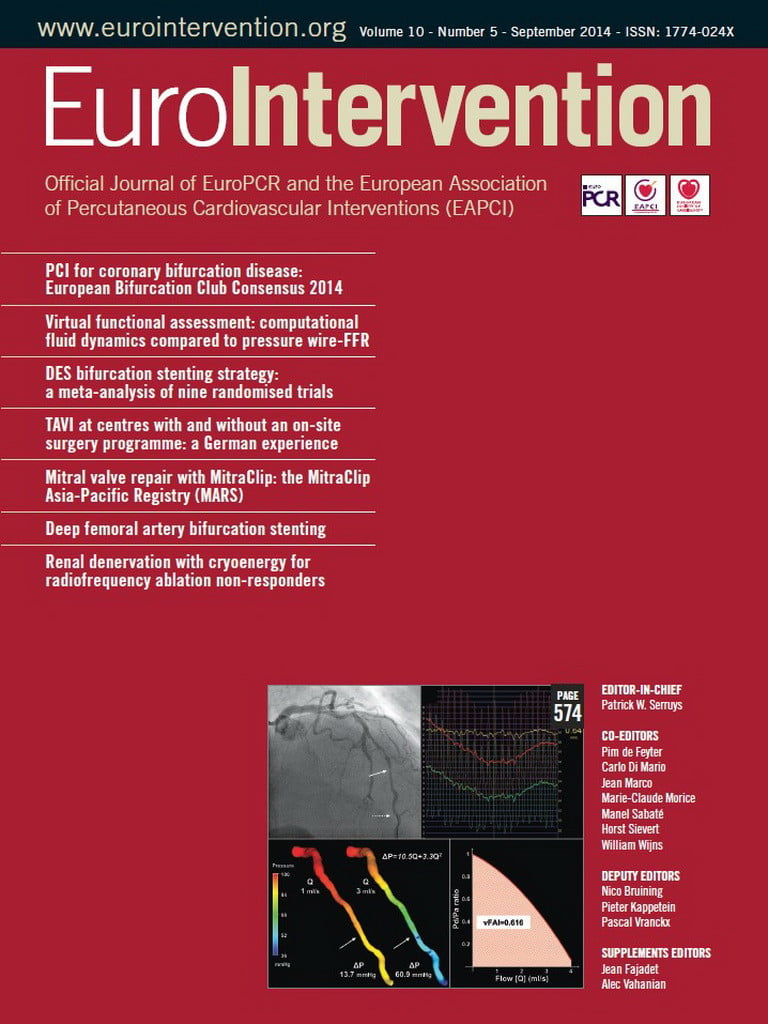NEWS
■ Join the EAPCI Communities on LinkedIn: EAPCI Community, EAPCI Young and – coming soon – the EAPCI Women and EAPCI Nurses and Allied Professionals.
■ Are you an interventionalist under 36 years? Apply for the EAPCI Training and Research Grants programme 2015 before 15 January 2015.
■ EAPCI Interventional Fellows Course: don’t miss the Krakow course from 3-4 December in Krakow, Poland.
■ “Young in training?” Enrol on the ESC eLearning platform and follow the 24-month training programme in interventional cardiology leading to a certificate of excellence in training. For more information, visit learn.escardio.org
EAPCI Focus on the Spanish Working Group of Interventional Cardiology
An interview with the President, Ramiro Trillo Nouche
What does the EAPCI membership mean for a national society?
Although we are proud to have a large EAPCI membership within our group, we still hope to increase these numbers over the coming years, doing so by encouraging our members to be exposed to the many fruitful roles played by this organisation. An example, while we do have a programme of accreditation from our own working group (WG), we have also started working together with the ESC/EAPCI ESCeL Platform. This educational platform has an important role to play in our development as cardiologists, especially for those who now wish to train as interventionalists. The ESCeL Platform programme has a theoretical element as well as a provision for gaining experience and improving the quality of an operator’s skills through the maintenance of a logbook. This logbook provides a framework, recording whether the trainee has operated as a first or second operator as well as the type of procedure and the tutor/mentor under whose supervision the intervention took place.
The EAPCI facilitates the possibilities of all the national groups meeting and joining forces to form a critical mass with respect to our European professional development. A good example of this is the Stent for Life initiative. While we are relatively successful within this initiative, demonstrating today that over 70% of the Spanish population falls within a primary PCI network, there is still work to be done. We are working hard to increase this coverage, but, due to the specific governmental structure within Spain –and in particular the fact that Spain has 17 different regional governments– this is a difficult challenge in order to create new primary PCI networks as a priority as well as a common policy across all these different regions. Despite this fact, next year we expect to see the coverage increase with the addition of new primary PCI networks to those which already exist. In reality, we had already started these networks before Stent for Life existed, back in 2005, so it has been, and still is, a long and hard road to achieve success.
Today, we have a Spanish representative on the EAPCI Board, Javier Escaned, as Treasurer of the Association. I myself am involved in the Education and Training Committee along with Lino Goncalves. With respect to fellowships, luckily most of our own fellows remain in Spain, but of course there are a few who travel abroad to widen their horizons. Incidentally, we do have a lot of fellows from Latin America in Spanish cathlabs.
What are the current issues related to the national society?
Officially, the interventional cardiology subspeciality is not recognised by the Ministry of Health (MOH). Nonetheless, our WG has its own procedure of accreditation and these WG-accredited interventionalists are listed on our own website. In the meantime, however, we have opened discussions with the MOH to address this issue. The MOH acknowledges that there are four main areas which need to be assessed for government recognition in cardiology: critical care, imaging, electrophysiology and interventional cardiology. These discussions will take some time to resolve.
Most interventional activities take place within the public sector, where there are 133 cathlabs which works out at 2.88 cathlabs per million population. However, there are also 118 private labs, accounting for the remaining 10% of interventions.
We are also working to create a solid national database, the goal being to build a database similar to Scandinavian countries: this is really our biggest challenge as we have many obstacles to overcome. At the same time, we have little or no support from the government, which is quite surprising when one realises the importance of good quality, audited data. At present, we have to rely on individual sites to collect data. Furthermore, we are also trying to promote more research and scientific output in Spain, providing research tools such as software for statistics and data management.

Ramiro Trillo Nouche, President of the Spanish Working Group of Interventional Cardiology
![]()
President: Ramiro Trillo Nouche
Secretary: Felipe Hernández Hernández
Contact details: [email protected]
Website: http://www.hemodinamica.com/
Upcoming annual meeting: will take place in June 2015, the venue is to be determined
Founded: 1992
Members: 692 (400 interventionalists)
EAPCI members: 244

